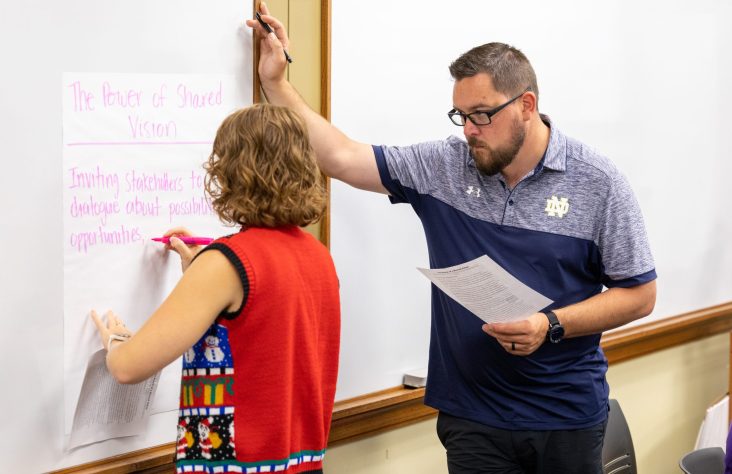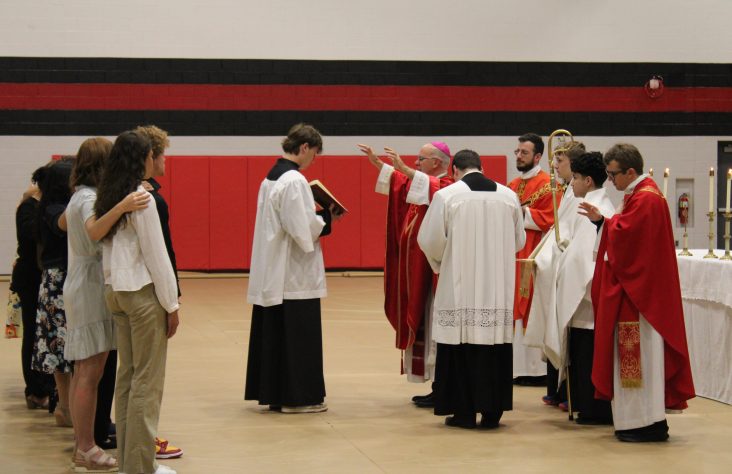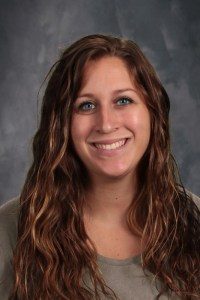January 26, 2018 // Schools
Mentoring program sets new teachers up for success
Much has been reported about a national teacher shortage, and at times diocesan schools have also experienced difficulty finding the right teacher, or enough qualified teachers for open positions. Perhaps more importantly, research has clearly indicated that teacher quality is directly associated with student achievement. Thus, recruiting and retaining high-quality teachers is essential for improving learning in diocesan schools.
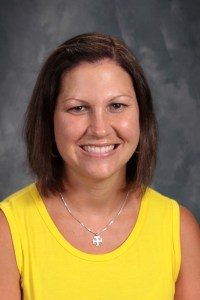
Jennifer Kleber, who teaches third grade at St. Elizabeth Ann Seton, has enjoyed being able to talk with teachers experiencing similar challenges and accomplishments in their classrooms. “It has also been nice to learn new strategies that I can effectively use in my classroom with my students.”
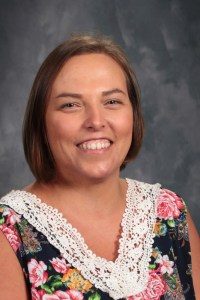
New classroom management and instructional skills are among the things Jessica Patton, a second-grade teacher at St. Elizabeth Ann Seton, Fort Wayne, has learned from the mentoring program. She also appreciates the personalized feedback and mentoring. “Mrs. Hankee and Mrs. Taylor listen to our needs and provide carefully planned sessions — all while reminding us that, although difficult from time to time, teaching is a passion-filled profession that makes a difference.”
In the last few years, schools across the Diocese of Fort Wayne-South Bend have been fortunate to be able to employ many new, enthusiastic young people as teachers, including 44 first-year teachers for the school year 2017-18. Supporting new teachers and developing the skills needed to become successful and proficient in the classroom has been the focus of the New Teacher Success Program, in which all new teachers in the diocese must participate.
This program takes place in collaboration with Dr. Nancy Hankee, retired associate professor of education, University of Saint Francis, and Tammy Taylor, associate professor of education, Indiana Tech, Fort Wayne. New teachers are provided with expert mentoring, timely professional development targeted to the specific needs of new teachers, as well as the opportunity for professional collegiality with fellow new teachers.
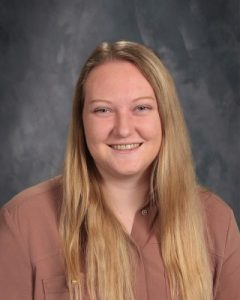
“I’ve enjoyed meeting fellow new teachers: We see some similar challenges and successes and have been able to build on our understanding of great teaching together,” said Molly Brunner, St. John the Baptist School, New Haven.
Hankee explained that the program is intended to “enhance student achievement, strengthen school leadership and offer personal interaction and feedback with” both her and Taylor. Now in its third year, the New Teacher Success Program includes opportunities for teachers throughout what might be considered their “new” phase: that is, opportunities for those in their first, second and third years of teaching.
“For first-year teachers, we meet once per month in a 90-minute workshop format,” Hankee said. “Tammy and I visit their classrooms and meet with them or observe them teaching, once in the fall and once in spring.” The workshops are varied in their format. Sometimes Hankee and Taylor hire a guest speaker, but other times they present on pertinent topics that most directly affect long-term retainment for teachers: classroom management, handling parent-teacher conferences and literacy across the curriculum.
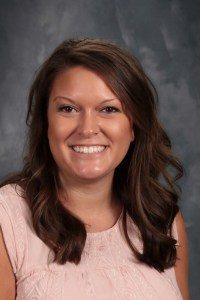
Alyssa Knuth, first-grade teacher at St. Elizabeth Ann Seton School, Fort Wayne, said the New Teacher Success Program allows teachers to share both successes and struggles. “Being able to share these stories is truly impactful, as we are able to then take the insights and strategies we learned during the meetings and implement them in our classroom the very next day.”
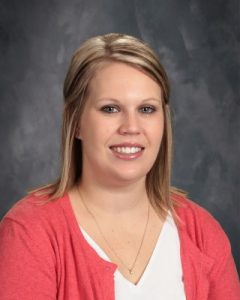
Abby Gerardot of St. John the Baptist School, New Haven, is part of the New Teacher Success Program in the Diocese of Fort Wayne-South Bend. She said Dr. Nancy Hankee and Tammy Taylor, directors of the program, “have been a great support in my beginning years of teaching. They have provided me with the tools I need to better my practice.”
Second-year teachers tend to want more observation than the advice that first-year teachers seek. “First-years usually want to talk through their concerns, but by the second year, they have been working at the practice” long enough to want more direct influence, according to Hankee. By the third year, teachers have fewer workshops, visits and communication with Hankee and Taylor, because both believe it’s time for the teachers to begin weaning off the immediate support offered. However, Hankee and Taylor are very receptive to continuing the dialogue via email or in person when requested.
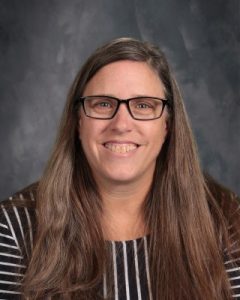
Gerardot’s fellow teacher at St. John the Baptist, Maria Olde, said the New Teacher Success Program is a “safe place for new teachers to openly discuss and work together.”
The response has been incredibly positive on all sides. Superintendent of Catholic Schools Marsha Jordan told Hankee she’s noticed an increase in the effectiveness of teachers overall; they work better with their students, so the children are achieving more in the classrooms. Lois Widner, principal at St. Elizabeth Ann Seton School in Fort Wayne, agreed. “I think what is great about the program are the meetings where the teachers can collaborate with their peers. They can come together to get their questions answered and concerns addressed.”
Taylor believes the entire program was born from providence. “Nancy and I happened to be attending an education conference in San Antonio at the same time, but we didn’t know each other. It was until I was talking with one of the speakers after a presentation that she mentioned there was another woman from Fort Wayne in attendance.” She and Nancy hit it off immediately and began sharing about how to maintain the enthusiasm of new teachers. They wanted to do something to help offer support before the new teachers became overwhelmed with the expectations of the job.
“Right now, teaching is hard work,” explained Taylor. “Society expects more from teachers, and yet teachers are receiving less support and fewer resources than ever before. Marsha Jordan really understands this and was in alignment with our philosophy and understanding. She knew there was something missing, as well.”
Both Hankee and Taylor have felt immense gratification mentoring new teachers who are well-trained and ready to tackle the various challenges and day-to-day aspects of the job. For both, it has been a way to share their passion for and talent of teaching.
Taylor concluded, “One of the things I appreciate about working with the Catholic schools is that they still very much value students as individuals, as unique persons with inherent dignity. We’re pleased to work with their teachers, who value them as children and as people.”
The best news. Delivered to your inbox.
Subscribe to our mailing list today.



